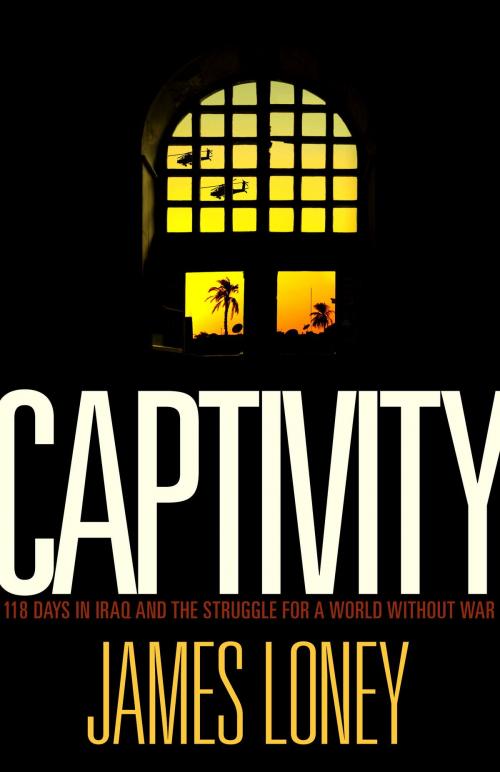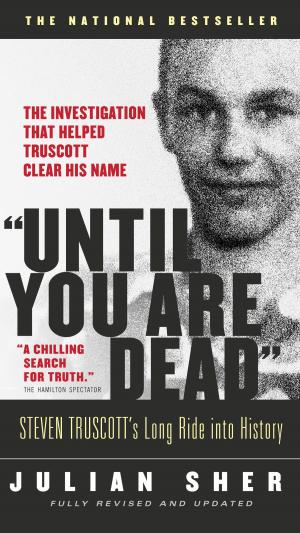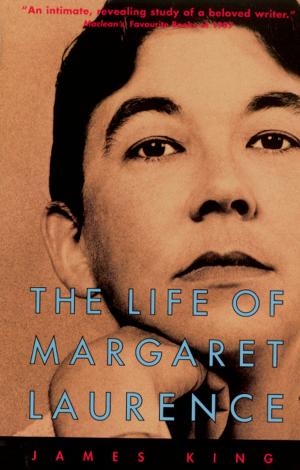Captivity
118 Days in Iraq and the Struggle for a World Without War
Biography & Memoir, Religious, Nonfiction, History, Military, Social & Cultural Studies, Political Science| Author: | James Loney | ISBN: | 9780307399298 |
| Publisher: | Knopf Canada | Publication: | April 19, 2011 |
| Imprint: | Knopf Canada | Language: | English |
| Author: | James Loney |
| ISBN: | 9780307399298 |
| Publisher: | Knopf Canada |
| Publication: | April 19, 2011 |
| Imprint: | Knopf Canada |
| Language: | English |
The powerful account of the remarkable peace activist kidnapped while leading a peace delegation and held for ransom by Iraqi insurgents until his paradoxical release by a crack unit of special forces commandos.
In November 2005, James Loney and three other men — Canadian Harmeet Singh Sooden, British citizen Norman Kember and American Tom Fox — were taken hostage at gunpoint. The men were with Christian Peacemaker Teams (CPT), an organization that places teams trained in non-violent intervention into lethal conflict zones. The then unknown Swords of Righteousness Brigade released videos of the men, resulting in what is likely the most publicized kidnapping of the Iraq War. Tom Fox was murdered and dumped on a Baghdad street. The surviving men were held for 118 days before being rescued by Task Force Black, an elite counter-kidnap unit led by the British SAS. Captivity is the story of what Jim described upon his return to Toronto and reunion with his partner Dan Hunt as "a terrifying, profound, transformative and excruciatingly boring experience." It presents an affecting portrait of how Jim came to be a pacifist and chronicles his work in Iraq before the kidnapping. It brings the reader immediately into the terror and banality, the frictions, the moral dilemmas of their captivity, their search to find their captors' humanity, and the imperative need to conceal Jim's sexual identity. It examines the paradoxes we face when our most cherished principles are tested in extraordinary circumstances and explores the universal truths contained in every captivity experience. At its heart, the book is a hope-filled plea for peace, human solidarity and forgiveness.
From James Loney:
Why I Wrote This Book
I often wondered, during those excruciating days of handcuffs and chains, fear and boredom without end, would I ever get to tell anyone about the strange and bizarre things that happened during our captivity? Being transported in the trunk of a car. Sleeping with my left and right hands handcuffed to the person beside me. Explaining to the captors how to use “men’s gel.” Picking open our handcuffs after watching a Hollywood movie.
It is a paradox. I went to Iraq as a pacifi st on a mission of peace and was kidnapped, threatened with death and held hostage with three other men until we were rescued in a military operation. It is an extraordinary privilege to be able to tell the story of this paradox, to explain why I remain committed to the principles of nonviolence despite the fact a member of our group was murdered and our freedom was secured by armed force. The crucible of captivity was a kind of school in which I was able to see the innermost workings of the universe, how we are all connected, how our liberation is inextricably tied together. I want to share this story in the hope of contributing to the emergence of a world without war, the single greatest challenge of the 21st century. Everything depends on this, for without peace nothing else is possible.
The powerful account of the remarkable peace activist kidnapped while leading a peace delegation and held for ransom by Iraqi insurgents until his paradoxical release by a crack unit of special forces commandos.
In November 2005, James Loney and three other men — Canadian Harmeet Singh Sooden, British citizen Norman Kember and American Tom Fox — were taken hostage at gunpoint. The men were with Christian Peacemaker Teams (CPT), an organization that places teams trained in non-violent intervention into lethal conflict zones. The then unknown Swords of Righteousness Brigade released videos of the men, resulting in what is likely the most publicized kidnapping of the Iraq War. Tom Fox was murdered and dumped on a Baghdad street. The surviving men were held for 118 days before being rescued by Task Force Black, an elite counter-kidnap unit led by the British SAS. Captivity is the story of what Jim described upon his return to Toronto and reunion with his partner Dan Hunt as "a terrifying, profound, transformative and excruciatingly boring experience." It presents an affecting portrait of how Jim came to be a pacifist and chronicles his work in Iraq before the kidnapping. It brings the reader immediately into the terror and banality, the frictions, the moral dilemmas of their captivity, their search to find their captors' humanity, and the imperative need to conceal Jim's sexual identity. It examines the paradoxes we face when our most cherished principles are tested in extraordinary circumstances and explores the universal truths contained in every captivity experience. At its heart, the book is a hope-filled plea for peace, human solidarity and forgiveness.
From James Loney:
Why I Wrote This Book
I often wondered, during those excruciating days of handcuffs and chains, fear and boredom without end, would I ever get to tell anyone about the strange and bizarre things that happened during our captivity? Being transported in the trunk of a car. Sleeping with my left and right hands handcuffed to the person beside me. Explaining to the captors how to use “men’s gel.” Picking open our handcuffs after watching a Hollywood movie.
It is a paradox. I went to Iraq as a pacifi st on a mission of peace and was kidnapped, threatened with death and held hostage with three other men until we were rescued in a military operation. It is an extraordinary privilege to be able to tell the story of this paradox, to explain why I remain committed to the principles of nonviolence despite the fact a member of our group was murdered and our freedom was secured by armed force. The crucible of captivity was a kind of school in which I was able to see the innermost workings of the universe, how we are all connected, how our liberation is inextricably tied together. I want to share this story in the hope of contributing to the emergence of a world without war, the single greatest challenge of the 21st century. Everything depends on this, for without peace nothing else is possible.















